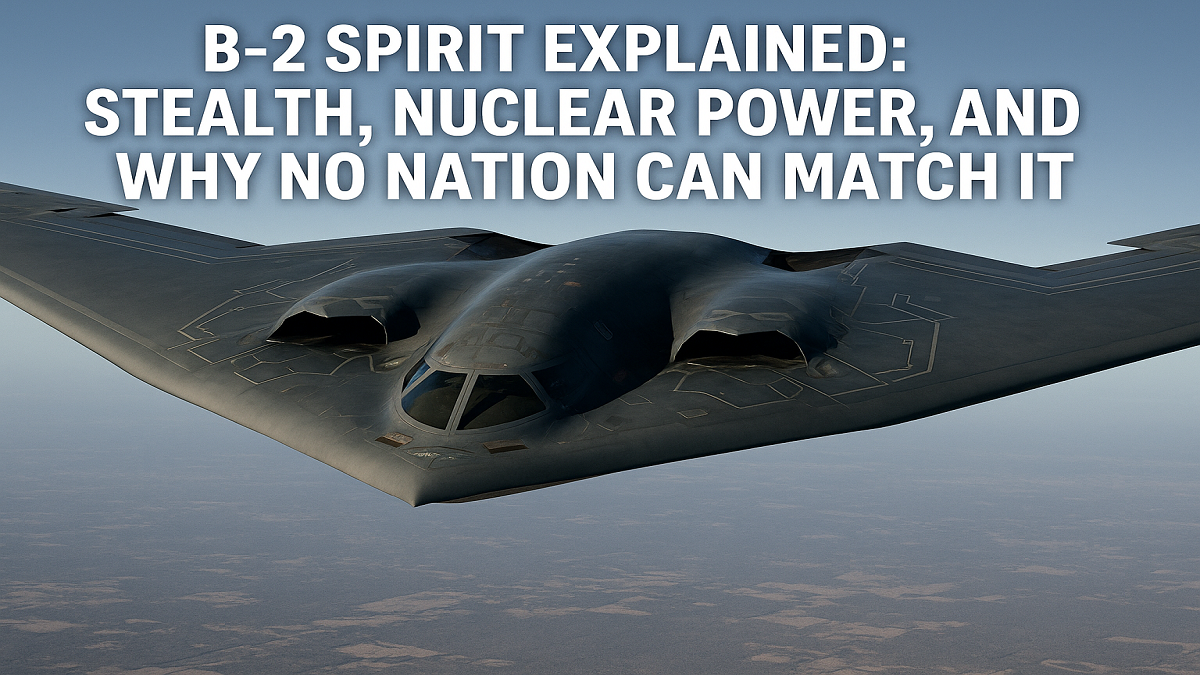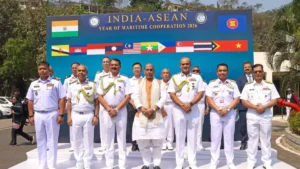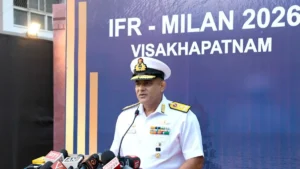The B-2 Spirit, developed by Northrop Grumman, is the world’s most advanced stealth bomber. Designed during the Cold War to penetrate dense Soviet air defenses, the B-2 remains an essential component of the United States’ nuclear and conventional deterrence strategy. With a design that emphasizes low observability, global reach, and precision, it is unrivalled in its category.
I. Design and Stealth Technology
Flying Wing Configuration
The B-2 features a flying wing design, eliminating tail surfaces and vertical stabilizers to minimize radar cross-section. This design also improves aerodynamic efficiency, allowing for greater range and payload.
Radar Absorbent Materials (RAM)
The aircraft’s surface is coated with advanced composite materials and RAM coating that absorb and deflect radar waves, making it nearly invisible to even low-frequency radar systems.
Heat Signature Suppression
Its engine intakes are buried within the wing, and exhaust gases are cooled and spread out over the aircraft’s upper surface to reduce infrared detection.
Electronic Countermeasures
In addition to physical stealth, the B-2 uses active electronic warfare systems to jam enemy radar, spoof missile tracking, and protect itself in high-threat environments.
II. Performance and Specifications
| Feature | Specification |
|---|---|
| Manufacturer | Northrop Grumman |
| Role | Strategic Bomber |
| First Flight | July 17, 1989 |
| Introduction | January 1, 1997 |
| Number Built | 21 (including one test unit) |
| Crew | 2 (Pilot and Mission Commander) |
| Wingspan | 172 ft (52.4 m) |
| Length | 69 ft (21 m) |
| Height | 17 ft (5.2 m) |
| Max Takeoff Weight | 336,500 lbs (152,200 kg) |
| Range | 6,000 nautical miles (11,100 km) unrefueled |
| Speed | High subsonic (~Mach 0.95) |
| Service Ceiling | 50,000 ft (15,240 m) |
III. Payload and Weapons Systems
Payload Capacity
The B-2 can carry up to 40,000 pounds (18,000 kg) of mixed ordnance in two internal bomb bays.
Nuclear Capability
-
B61 and B83 nuclear gravity bombs
-
Certified to deliver weapons under U.S. nuclear command authority as part of the nuclear triad
Conventional Weapons
-
JDAMs (Joint Direct Attack Munitions) – GPS-guided bombs
-
GBU-57A/B Massive Ordnance Penetrator (MOP) – for hardened underground targets like bunkers or silos
-
MOAB and other large-yield conventional bombs
-
Smart Bombs – laser-guided or GPS-guided, depending on mission profile
IV. Avionics and Systems
Integrated Avionics Suite
The B-2 uses a fully digital fly-by-wire system and glass cockpit. All systems are interconnected and managed by onboard computers, giving the crew real-time updates about mission status, aircraft health, and threats.
Satellite and Secure Communications
Equipped with satellite uplinks, the B-2 maintains constant contact with Global Strike Command and other networked U.S. forces, enabling real-time targeting and battle management.
Navigation Systems
-
INS (Inertial Navigation System)
-
GPS-aided navigation
-
TERCOM (Terrain Contour Matching) for precise low-altitude ingress
V. Operational History and Combat Use
Combat Missions
The B-2 Spirit has participated in several high-profile military campaigns:
-
Kosovo War (1999): Debut in Operation Allied Force; struck Serbian targets with precision.
-
Afghanistan (2001): Flew from Whiteman AFB in Missouri to Afghanistan and back, totaling 44 hours, with aerial refueling.
-
Iraq War (2003): Delivered early strikes on Baghdad in “shock and awe” operations.
-
Libya (2011): Bombed air defenses and command structures during Operation Odyssey Dawn.
-
ISIS Campaigns (2017): Struck ISIS camps in Libya using JDAMs, showcasing long-range precision strike ability.
Global Reach
The B-2 can launch from the continental U.S., strike targets anywhere in the world, and return without stopping, thanks to air-to-air refueling. It demonstrates true intercontinental strike capability.
VI. Strategic Role and Modernization
Nuclear Deterrence
As part of the U.S. nuclear triad (alongside ICBMs and SSBNs), the B-2 provides airborne deterrence, capable of a first or second-strike in a nuclear conflict.
Conventional Dominance
The B-2 also plays a key role in conventional deep-strike operations, especially in anti-access/area-denial (A2/AD) environments where stealth is critical.
Ongoing Upgrades
Despite being over 30 years old, the B-2 fleet is undergoing continuous modernization, including:
-
Next-gen communications
-
Enhanced radar and defensive avionics
-
Integration of new nuclear weapons like the B61-12
-
Life extension programs to keep the fleet operational until 2040
VII. Limitations and Challenges
High Maintenance Requirements
The B-2’s stealth coating and systems require intensive maintenance, including climate-controlled hangars and long servicing times.
Cost
Each B-2 cost approximately $2.1 billion (including R&D), making it one of the most expensive military aircraft ever built.
Limited Fleet
Only 20 operational aircraft exist, meaning each bomber is a critical strategic asset and must be carefully deployed.
VIII. The Future: B-21 Raider Transition
The B-2 will eventually be replaced by the B-21 Raider, also developed by Northrop Grumman. The Raider aims to:
-
Be cheaper to operate
-
Use improved stealth and automation
-
Support unmanned and manned missions
-
Complement or replace the B-2 by the late 2030s
Until then, the B-2 remains America’s premier stealth bomber, capable of delivering unmatched precision and power anywhere on Earth.



 Defense Minister Rajnath Singh Inaugurat...
Defense Minister Rajnath Singh Inaugurat...
 MILAN Village Opens in Visakhapatnam For...
MILAN Village Opens in Visakhapatnam For...
 Rajnath Singh Unveils Missile Integratio...
Rajnath Singh Unveils Missile Integratio...








